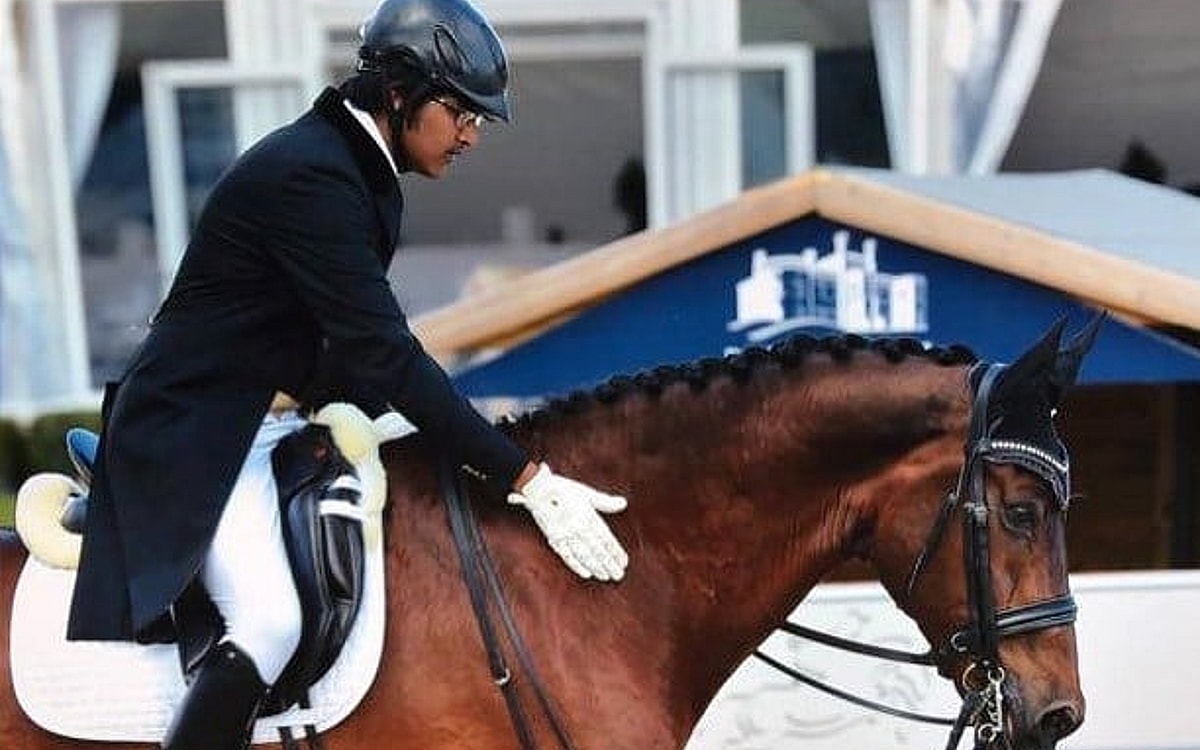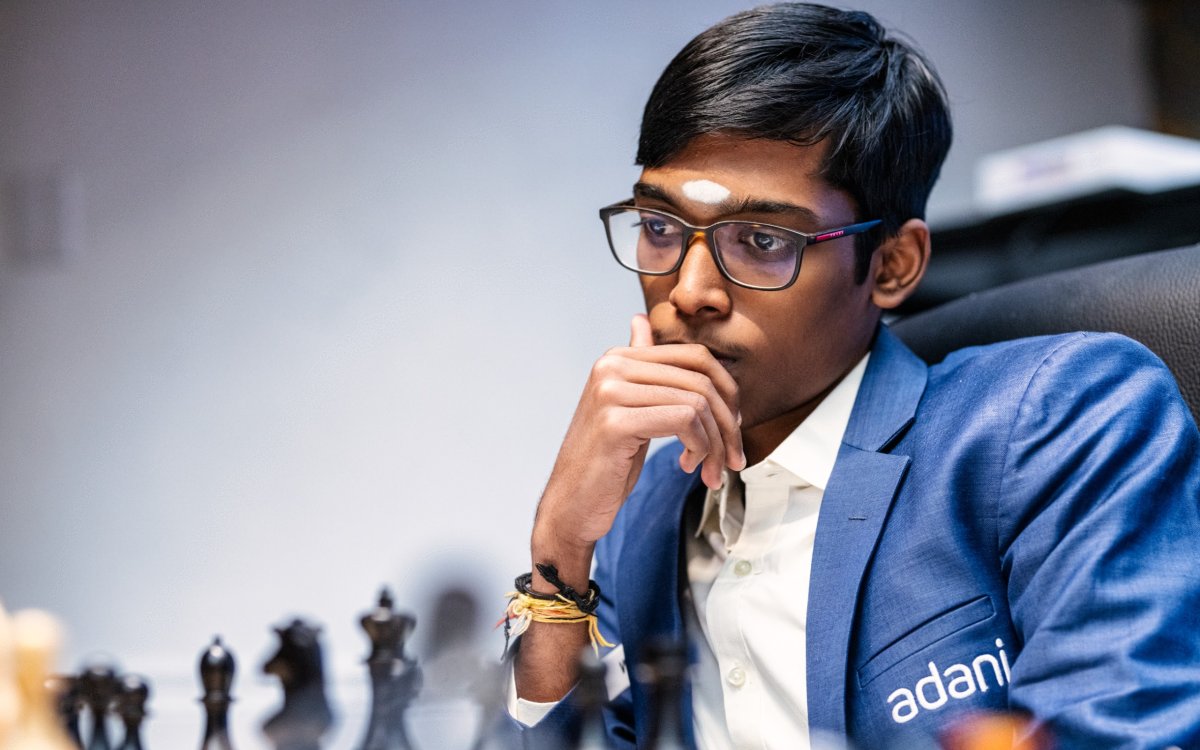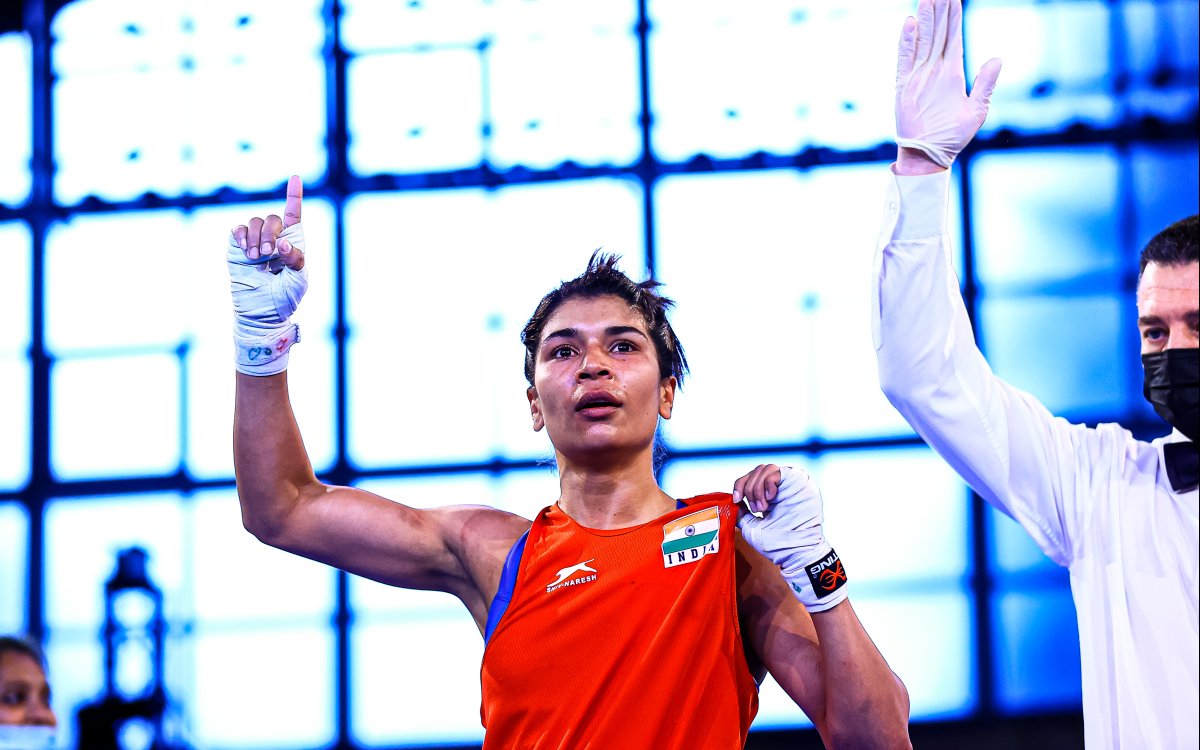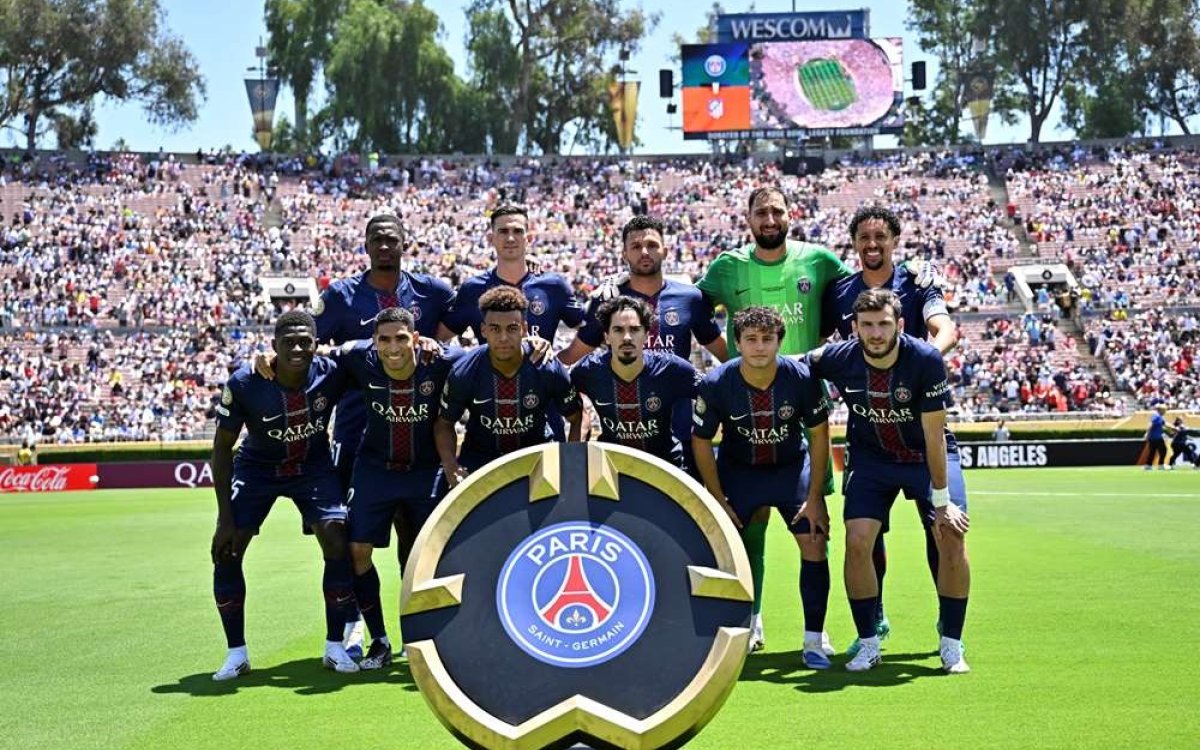Chhatrapati Shivaji Maharaj Airport: A businessman with an interest in interiors, Vipul Chheda has no technical knowledge of equestrian sports or dressage competition. The only reason he follows horses and horse riders is that his son Hriday is an equestrian player and represents the country in the Asian Games in Hangzhou.
That was the reason why he was at the Chhatrapati Shivaji Maharaj Airport in Mumbai on September 20 night — to board a flight to China to be in Ningbo and watch his son participate in the dressage competitions.
“Mark my word, my son will win a medal in the Asian Games,” said Vipul Chheda as he waited in the queue to get to the check-in counter.
His prophecy came good and Hriday along with teammates Anush Agarwalla, Sudipti Hajela and Divyakriti Singh made history when they won the gold medal in the Dressage Team event — the first-ever gold medal in Dressage and the first medal in Dressage in four decades. India had won a bronze medal in the Dressage Team event way back in 1982 when the sport made its Asian Games debut in New Delhi.
“My father is an eternal optimist, He doesn’t know much about the technicalities of Equestrian or of Dressage,” Hriday told IANS on Tuesday after playing a key role in the team’s golden triumph.
“Like all parents, he always wants the best of me and that’s why he must have said that. It was a very tough event and very challenging and all four of us gave it our best to make it possible,” said the 25-year-old rider from Pune. He said
Though his father may not know much about equestrian sport, Hriday says Vipul has been his most ardent supporter from the day he decided to take up equestrian as his profession.
“My father has always supported me 100% from day one. Equestrian is a very costly sport and you can’t do without support from your family. He never objected to me taking up riding, he has been interested in horses. It has been difficult for me, it needed a lot of hard work, to be in Europe, working with horses, learning dressage and competing in events there,” said Hriday, who initially took up dressage and show jumping before shifting to the former.
On their golden triumph on Tuesday, Hriday said all of them were confident of doing well and did their best from the first rider out in the morning. “We had our first rider out after 8 a.m. and after that, everyone just remained focused on doing our best. It is a huge achievement for all of us to win this medal after 42 years,” he said.
“Sudipti went out first and then Divyakriti followed by Anush and me. At 25, I am the oldest among them and I know how much handwork all four of us have put in,” he said.
Hriday seconded his teammates when they said that they were never in doubt about winning the medal but added that it was an incredibly tough challenge.
All four of them will return to the Tonglu Equestrian Centre on Wednesday to compete in the Dressage Individual competition in which they have qualified.
Hriday is confident that they will win medals in Individual Dressage too.
More attention to equestrian sports
Hriday hoped that their gold medal would get more attention from the authorities for equestrian sports and it would get the support that it deserved.
“Our federation (Equestrian Federation of India) has gone through a lot of turmoil recently (because of governance issues). I just hope that things will get better soon. I hope that we winning the first-ever gold in dressage and a medal in dressage after such a long gap will get equestrian support from all quarters. It is a very costly sport and players need all the support that they can get,” said Hriday.
He did not agree that dressage as an event was the most difficult of all equestrian events because of the high degree of coordination required between the rider and horse as they perform a series of predetermined movements, known as ‘figures’ or “movements” in an arena of 20×60 metres. In all competitions, the horse has to show the three paces: walk, trot and canter as well as smooth transitions within and between the 12 lettered markers placed symmetrically in the arena.
“I would not like to go into which one is more difficult, all of them are tough. Dressage is a little bit more technical but others have their own challenges like if you make a mistake, you can fall off the horse,” he said.
The four riders must definitely be hoping that their victory in Hangzhou not only gets support for the sport from all quarters, it also inspires youngsters to take up equestrian sport.
“Without more support from the federation, the governments, families and society, we may reach a situation where we may have to wait for 42 years again for the next medal in dressage. We don’t want that to happen,” he said.




